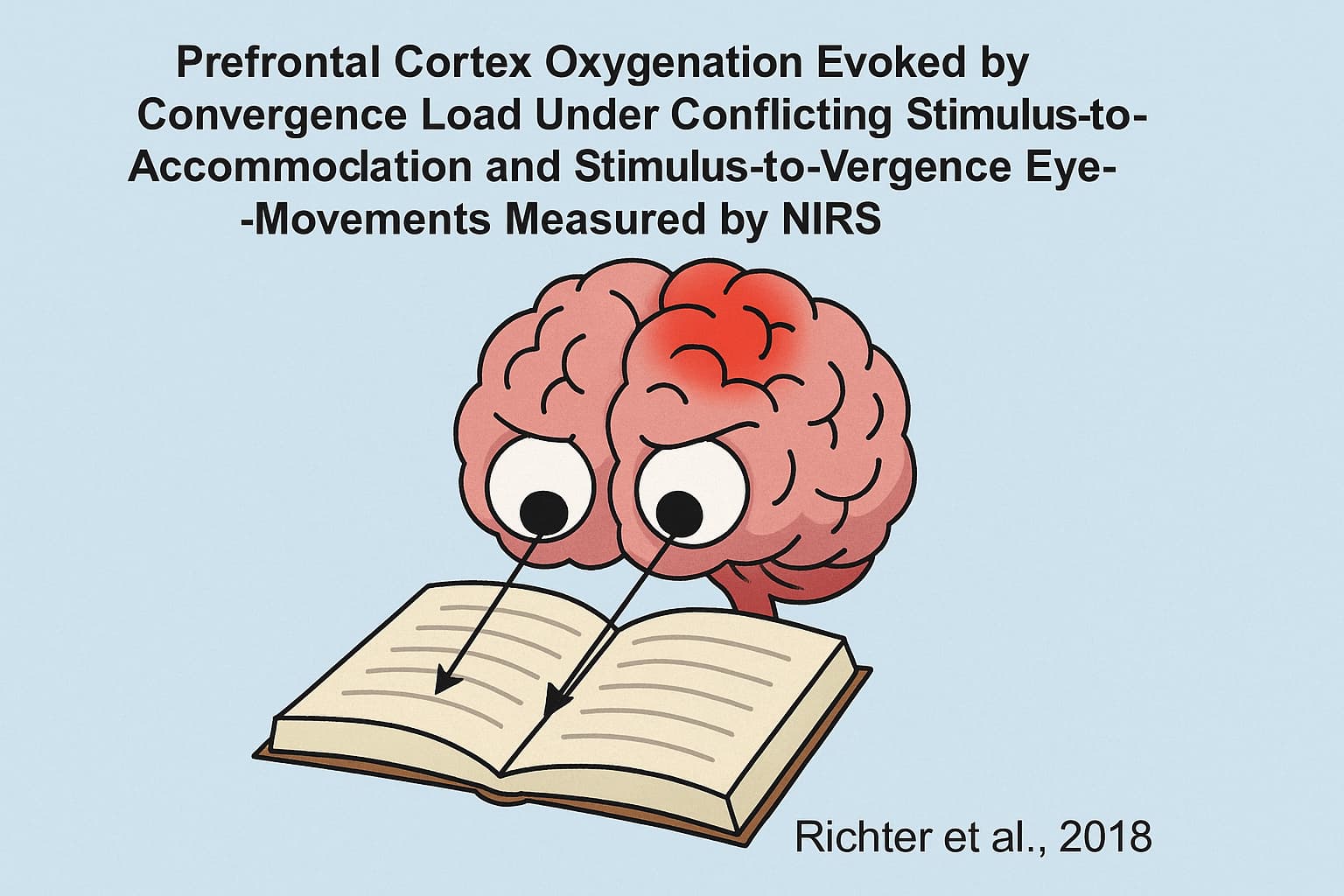Mange elever med læsevanskeligheder har faktisk ikke et synshandicap – de består skolens synstest uden problemer. Alligevel har de svært ved at fokusere, springer ord over eller mister koncentrationen. Hvorfor?
Forskning viser, at op til 80 % af børn med læsevanskeligheder har subtile mangler i, hvordan øjnene arbejder sammen – såkaldte prækliniske konvergensproblemer. De er ikke synlige i standard synstests, men påvirker, hvor nemt vi holder fokus og fortolker tekst visuelt.
Men det handler ikke kun om synet – det handler også om hjernen.
👁️ I et banebrydende studie brugte forskere fra Gävle Universitet og Karolinska Institutet en metode, der måler iltning i hjernen (fNIRS). De viste, at når øjnene tvinges til at samarbejde under vanskelige forhold – såsom når konvergens og fokusering er i konflikt – aktiveres frontallappen kraftigt. Denne del af hjernen styrer både opmærksomhed og arbejdshukommelse.
🧠 Og ikke nok med det: da opgaven også blev kombineret med en kognitiv udfordring (tænk: læseforståelse i skolen), steg belastningen endnu mere. Hjernen skal derfor arbejde dobbelt så hårdt – både for at styre øjnene korrekt og samtidig for at bearbejde indholdet.
Dette giver et vigtigt fingerpeg om, hvorfor nogle elever bliver udmattede af at læse – selvom de kan læse.
📈 Imvis VR-træning er baseret på dokumenteret kongruenstræning, men er blevet moderniseret for at passe til elever i et skolemiljø. Studier fra Karolinska Institutet viser, at det forbedrer både øje-hånd-koordination og læsefærdigheder – hvilket igen kan reducere unødvendig belastning af hjernen.
Læs hele undersøgelsen nedenfor eller ved at klikke her


